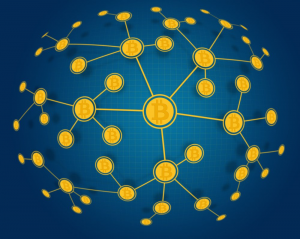Managing a growing company requires competence in two business strategies: centralization and decentralization.
Decentralization, as the name implies, is the process of spreading out the business from the managing core. It is done by developing multiple profit centers, each with its own management team, in different geographical/market areas and/or with different product lines.
Decentralization is usually a strategy for growth. But it is also a good vehicle for innovation, because you have more people separately working on similar challenges and problems.
Centralization is the contrary process. When you centralize a business, you reduce the number of independent operating entities, bringing them back under the command of a central core management team. You end up with fewer people in charge of more business functions and activities.
Decentralization is generally employed when the business seems to be slowing down because of bureaucratic bottlenecks. When there is a concern that growth has stalled because too few people have too much to do.
Centralization is generally done when the business seems to have lost its bearings. When communication and production and processes are breaking down. When there is a concern that profits are being lost due to redundancies and inefficiencies.
To centralize or decentralize? It’s a critical decision that every CEO of a growing company has to make – and remake – at various stages. And most of the time, the answer is fairly simple. When seeking innovation, decentralize. When seeking efficiency, centralize.
From the perspective of our hypothesis, centralization can be seen as an exercise in concentration and decentralization as an exercise in expansion. But, in fact, decentralizing requires a good amount of relaxation (of control) on the part of senior management. Breaking up one marketing division into four almost guarantees that protocols and practices will begin to change. Some for the better and some for the worse.
To support decentralization, you have to be “loose” enough to accept some degree of unexpected and unfortunate outcomes for the sake of longer-term growth. To support centralization, you have to believe that the policies and practices implemented by the core management team will be better than the sum total of those that had been in place before.
Most managers arrive at their jobs predisposed to one or the other strategy. Those that favor control prefer lots of meetings, memos, monitoring, and “feedback.” They feel safest when the power structure is hierarchical and everything is regulated, so they do everything in their power to keep that order.
Other managers arrive with a more flexible disposition. They are not comfortable with rigid structures and formalities. They prefer fewer meetings and memos. And they provide employees with a good deal of freedom in deciding how to do their jobs. These laidback managers feel comfortable with a more horizontal power structure.
Of course what actually happens in most growing businesses is that there is an ongoing fluctuation between these polarities, depending on external market conditions and internal goals and resources.
Thus the challenge for managers is twofold: to understand their own preferences in terms of control, and to adjust their behavior when circumstances demand that they manage otherwise.
In other words, the concentration-prone manager must understand that there will be times when he/she must make an effort to loosen things up. And the relaxation-prone manager must understand that there will be times when he/she must tighten things up.
The most effective managers can do both.
* In this series of essays, which hopes to become a book, I’m exploring an idea I’ve been thinking about for a long time: that our knowledge of the universe and our experience of living can be understood by the metaphor of pulsation – of contraction and relaxation. And that such an understanding might be helpful in succeeding in life and accepting death.

